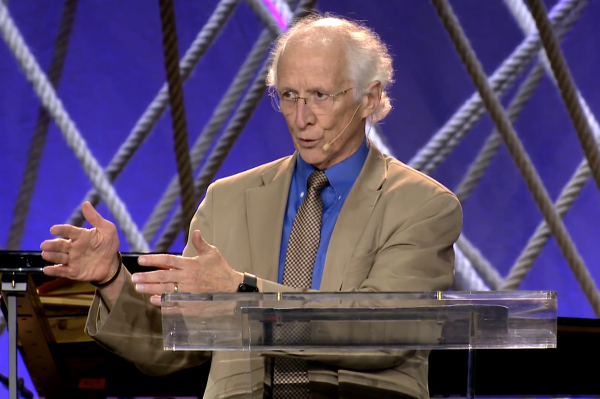Professor Asks: 'Did Jesus Die for Klingons Too?'
During a recent conference that focused on the possibilities and implications of long-term space flight, a German professor made an attempt at applying Christian theology to extraterrestrial aliens, leading him to ask the question “Did Jesus die for Klingons too?”
Christian Weidemann, a philosophy professor from Ruhr-University Bochum in Germany, gave the lecture on theology and aliens as part of the 100 Year Starship Study symposium in Orlando, Fla., this past weekend.
Speakers at the symposium addressed a wide range of topics relating to extended space flight, including “Starship Technologies,” “Biology and Space Medicine” and “Education, Social, Economic and Legal Considerations.”
Weidemann's presentation was given as just one part of the “Philosophical and Religious Considerations” portion of the event, which was sponsored by the Defense Advanced Research Projects Agency of the U.S. Department of Defense. He addressed some of the problems that finding life on other planets could present to theologians who have to explain the Christian faith.
"According to Christianity, an historic event some 2,000 years ago was supposed to save the whole of creation," Weidemann said during his presentation, according to Science.com.
The question he raised goes something like this: Should advanced civilizations be discovered in other parts of the universe, why would God save Earthlings and not the rest of His intelligent creatures?
One idea he presented was that humans were the only “sinners” out of God's creation, and are therefore the only ones that require a savior, but he considered other possibilities as well.
“If there are extra-terrestrial intelligent beings at all, it is safe to assume that most of them are sinners too,” Weidemann said. “If so, did Jesus save them too? My position is no. If so, our position among intelligent beings in the universe would be very exceptional.”
If other life forms exist in our universe, he said, we should try to understand why Jesus chose to save those from Earth over other civilized life forms from other planets.
Did God reserve His grace solely for Earthlings and abandon the rest of the intelligent creatures in the universe? If not, how did God deal with the sin problem on multiple planets?
One possibility he mentioned is that God-incarnate visited each of the civilized planets and saved each of the races that inhabited them separately.
In order for that to be possible, however, he said multiple incarnations of God would have to exist at the same time. Assuming each incarnation took about 30 years, and based on how long civilizations are expected to survive, he estimated there would have to be approximately 250 incarnations of God present in the universe at any given time to cover the sins of each civilization.
Another professor from Ruhr-University Bochum, Michael Waltemathe, acknowledged this theory would be much more difficult to reconcile with Christianity than it would with other world religions, many of which either believe in multiple gods or don't assert that God's incarnation came specifically to Earth to save His creation.
Tripp York, an author and professor of Christian ethics, told The Christian Post Monday via email that Christians need to learn how to properly view aliens from other countries before they could ever learn to properly view aliens from another planet, should they exist.
“I think Christians need to first allow 'Biblical theology' to influence how they treat the aliens that are right here in our own midst! Hospitality to the stranger, the immigrant, the exiled, and the alien is at the core of Biblical teaching,” he wrote.
“Ezekiel, Amos, Isaiah – all of these prophets spend significant time teaching us of the importance of taking care of the stranger (regardless if the stranger is considered 'legal' or not by our temporary nation-states). Since the majority of Christians in the U.S. struggle with this very simple and clear biblical teaching, I doubt they would have any idea of how to think about life on other planets.”






















